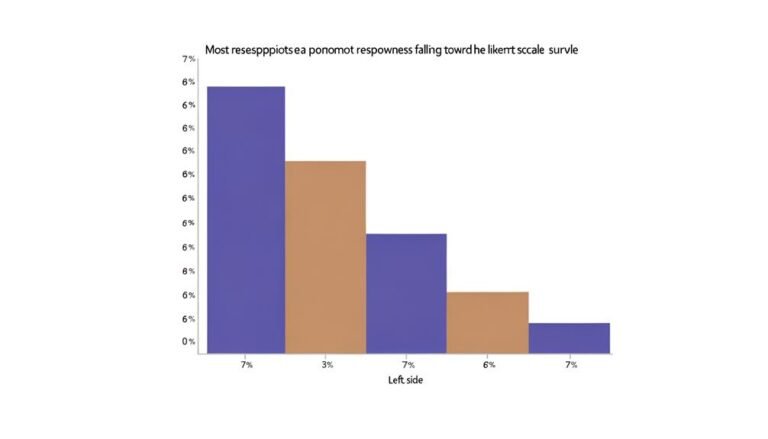What Is DEI Training?
In the realm of organizational development, Diversity, Equity, and Inclusion (DEI) training stands as a pivotal tool for driving cultural transformation and fostering an environment where every individual feels valued and respected.
However, the question remains: what exactly does DEI training entail, and how does it translate into tangible outcomes within the workplace?
By examining the core principles, methodologies, and impact of DEI training, we can begin to unravel the layers of this essential practice and explore its relevance in shaping inclusive workplaces for the future.
Key Takeaways
- DEI training aims to foster diversity, equity, and inclusion in workplaces.
- It involves raising awareness, influencing behavior, and changing institutional practices.
- Success factors include clear outcomes, tailored programs, and ongoing support.
- Strategic initiatives focus on context, common language, inclusive training, and talent lifecycle.
Goals of DEI Training
The primary objective of DEI training is to foster diverse, equitable, and inclusive environments within workplaces through targeted educational initiatives. By increasing awareness of inequality and bias, DEI training aims to prompt behavior change towards each other.
Through this training, individuals are encouraged to recognize their own biases, understand the impacts of systemic inequalities, and actively work towards creating a more inclusive workplace. The goal is not only to educate but also to inspire action, leading to tangible changes in institutional policies and practices.
Components of DEI Training
Key elements that constitute DEI training involve various types of educational sessions and workshops aimed at enhancing workplace diversity, equity, and inclusion. These components focus on fostering inclusive practices and cultural competence.
The training typically includes:
- Awareness sessions on diversity, equity, and inclusion: These sessions aim to increase understanding and recognition of different backgrounds and perspectives within the workplace.
- Skill-building workshops on cross-cultural communication: These workshops help individuals develop the necessary communication skills to interact effectively with colleagues from diverse cultural backgrounds.
- Inclusivity training for hiring and promotion processes: This training educates individuals on fair and unbiased practices when it comes to recruitment, hiring, and promoting employees, promoting cultural competence throughout the organization.
Topics Covered in DEI Training
Understanding the various topics covered in DEI training is essential for fostering a more diverse, equitable, and inclusive workplace culture. DEI training typically includes discussions on cultural competency and workplace diversity to promote understanding and respect for different backgrounds. It also addresses bias awareness to help participants recognize and challenge their preconceived notions.
Inclusion practices are emphasized to create environments where all individuals feel valued and supported. Topics such as self-reflection, historical and legal contexts, and role-specific training are commonly covered to provide a comprehensive understanding of DEI principles. By delving into these areas, DEI training aims to cultivate empathy, improve communication, and build a more harmonious and productive work environment for all.
Importance of DEI Training
Unlocking the transformative power of DEI training is essential for nurturing a workplace culture that values diversity, equity, and inclusion. DEI training plays a pivotal role in enhancing the workplace environment and promoting inclusivity.
Its importance lies in:
- Fostering Understanding: DEI training increases awareness of different perspectives and experiences, fostering empathy and understanding among colleagues.
- Building Stronger Teams: By promoting inclusivity and equity, DEI training helps create cohesive and collaborative teams that leverage the strengths of diverse individuals.
- Driving Organizational Success: Embracing diversity and inclusion through DEI training leads to improved performance, innovation, and overall organizational success.
Success Factors in DEI Training
In the realm of Diversity, Equity, and Inclusion (DEI) training, the foundation for success hinges on a strategic alignment of key elements that drive meaningful change within organizational cultures.
Assessment strategies play a crucial role in identifying areas for improvement and measuring the impact of training initiatives. Effective DEI training also requires competent facilitators who possess a deep understanding of diversity issues and inclusive practices.
Facilitator qualifications encompass not only subject matter expertise but also the ability to create a safe and engaging learning environment for participants. By incorporating robust assessment strategies and ensuring facilitators meet high qualifications, organizations can enhance the effectiveness of their DEI training programs and foster a more inclusive workplace culture.
Strategic Initiatives for DEI Training
Building upon the foundation of effective DEI training with a focus on strategic initiatives, organizations can create lasting cultural change by implementing targeted and inclusive approaches to talent development and organizational growth.
Strategic Initiatives for DEI Training:
- Establishing Common Language: Ensuring that all employees share a common understanding of diversity, equity, and inclusion concepts.
- Fostering Inclusive Conversations: Encouraging open dialogues that embrace diverse perspectives and experiences.
- Tailoring Training to All Learners: Providing accessible and relevant DEI training for employees at all levels of the organization.
Disability Equality Index:
The Disability Equality Index (DEI) is a comprehensive, objective, and confidential benchmarking tool designed to help businesses advance their disability inclusion practices. It was created in 2015 as a joint initiative between Disability:IN and the American Association of People with Disabilities (AAPD) to drive change in disability inclusion within businesses
Conclusion
In conclusion, Diversity, Equity, and Inclusion (DEI) training is a crucial component of creating a respectful and inclusive workplace culture.
One interesting statistic to consider is that organizations with diverse and inclusive workplaces are 35% more likely to have financial returns above the industry medians.
This highlights the tangible benefits of investing in DEI training to foster a more equitable and successful work environment for all employees.






